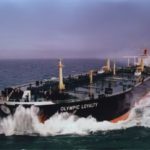Price-conscious bunker industry faces tough choices over credit

Tough financial times are bringing the issue of credit lines to the forefront of the shipping industry once again, with crumbling oil demand and tighter credit conditions forcing the industry into some hard choices — from obtaining or providing credit to broader questions around consolidation. Tentative signs of a demand recovery as measures to combat the coronavirus pandemic are eased offer only limited encouragement.
The bunker market largely runs on credit, with marine fuel sellers essentially acting as financing houses for ship operators which are dependent on this for their working capital and liquidity.
COVID-19 has not only impaired economies worldwide but has also has resulted in oil and bunker prices dropping sharply, with European crude benchmark Brent plunging 65.6% through the first quarter of 2020. Additionally Rotterdam-delivered 0.5%S bunker prices dropped 60.4% over the same period, propped up only by the continued need for freight shipping during nationwide lockdowns.
Weaker economic activity has meant less demand for bunkers and therefore the same bunker players fighting over a smaller share, while lower bunker prices translate into narrower margins.
One bunker trader noted that credit offices were more cautious as a result of the current economic uncertainty: “I hear that it is getting harder to obtain credit approval for bulkers.”
“We are hearing more and more issues and questions popping up about credit,” one bunker supplier based in Northwest Europe said.
“We did get some information from our credit insurer that some credit lines will be lowered…At the moment it is more difficult to apply for a new credit line,” a second trader in the region said noting that activity on credit remained normal at present.
Fallout
“Bunker players are shielding themselves by culling customers deemed riskier, even some that have been reliable for years, which makes life difficult for smaller bunker traders and small ship operators. At the same time, lower bunker prices are certainly a lifeline for so many sectors that have suffered a profound plunge in business, from container liners to bulk to cruise operators. Even the latter are still paying significant sums for bunkers for their idled ships,” said Jason Silber, Managing Director of SeaCred LLC, a marine credit reporting agency.
“Companies are doing the usual things that companies do during crises: burning, borrowing or raising cash. Large bulk operators may have big debts but at least they’re in a better position to capitalize on whatever business is out there, whereas some small operators with two small general cargo ships may be having a rough time — unless the ships are debt free and the owners have cash,” he added.
Peter Sand, chief analyst at BIMCO, the world’s largest international shipping association, suggests the industry is ripe for consolidation. “Everyone is doing its due diligence, one more time during times like this. Charterers, owners and banks putting up credit lines. As banks are likely to seek alternatives, to keep its exposure to industry — as it surely must be profitable business for them — banks are likely to support the bigger and fully globalized bunkering brands,” said Sand. “A consolidation of the bunker suppliers is inevitably on the cards.”
SeaCred’s Silber also noted that even in tough times like these there will be winners and losers. “While most bunker players are suffering, there are, as usual, some here and there who are doing pretty well, possessing, say, an expertise in a certain region or with certain types of customers, as well as displaying adaptability and nimbleness, even under dire circumstances.”
This all comes after a precipitous drop in oil prices saw the collapse of trading house Hin Leong Trading, which was hard-hit by trading losses from its lenders withdrawing credit lines. Hin Leong’s bunkering subsidiary, Ocean Bunkering Services, also canceled all fuel deliveries from April 18 onwards — an astounding move by Singapore’s third-biggest accredited bunker supplier by volume in 2019, according to Singapore’s MPA.
S&P Global Platts Analytics sees oil demand contracting 8.7 million b/d this year and a likely U-shaped recovery. The marine fuel industry still has choppy waters ahead.
Source: Platts

 Hellenic Shipping News Worldwide Hellenic Shipping News Worldwide, Online Daily Newspaper on Hellenic and International Shipping
Hellenic Shipping News Worldwide Hellenic Shipping News Worldwide, Online Daily Newspaper on Hellenic and International Shipping






















 PG-Software
PG-Software